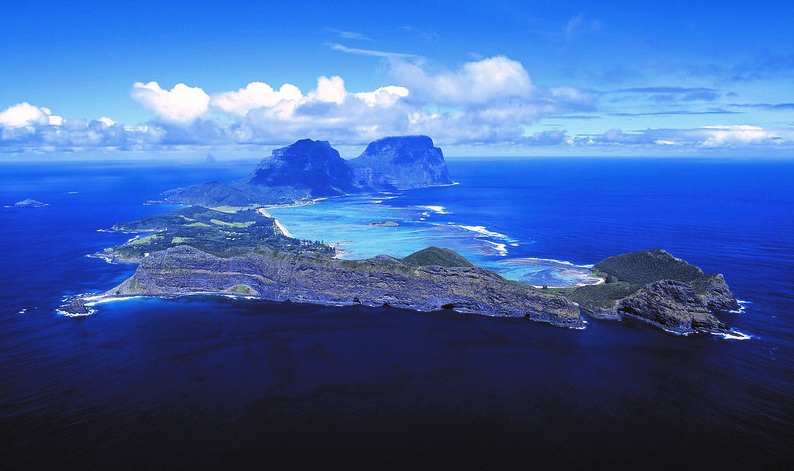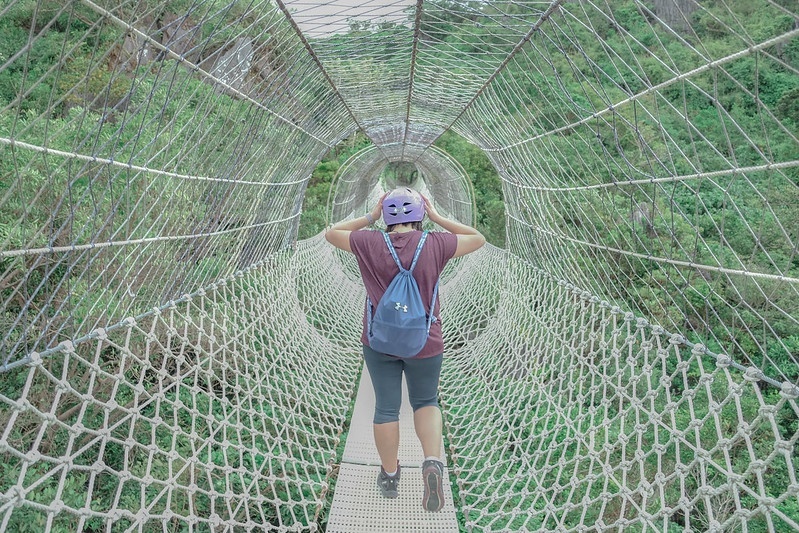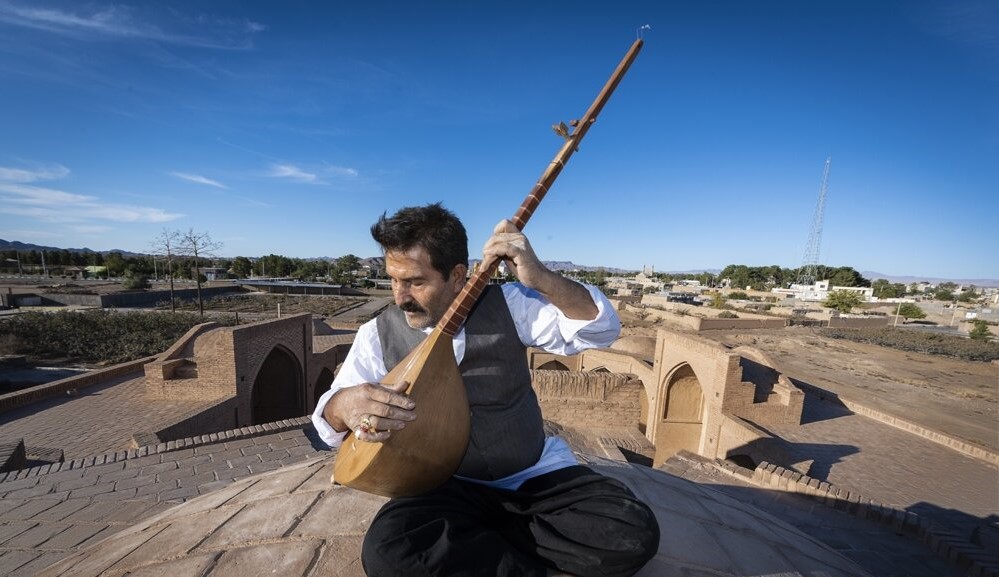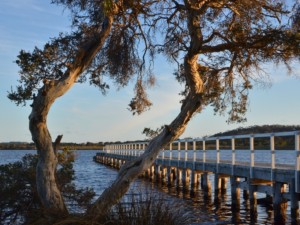Good news in tourism March 1 – 7, 2020

Published Sunday to be ready on Monday, “Good news in tourism” is the perfect pick-me-up for the start of a new work week. Let’s get stuck in … And go!
Important “GT” stuff first:
“GT” asked a sample of Tourism Declares Climate Change signatories what they meant by “system change” and “urgent regulatory action” and on Tuesday published a post with their responses. Your correspondent supports points 1 – 4 of the Tourism Declares declaration — individual undertakings and organisational commitments — but is wary of calls for unspecified government intervention as per point 5. (While it doesn’t necessarily lead to friendships to dig a little, someone had to.)
Your correspondent reckons “GT” Insight Partner SUNx — Strong Universal Network and Tourism Declares should collaborate — combine the former’s think tank approach with the latter’s canvassing and petitioning format; come up with a specific manifesto for new government policy and then put it to travel & tourism stakeholders. There is an opportunity there, perhaps, to build a real global movement with a plan, a policy proposal, and stakeholder support … (But what would “GT” know?)
Diversity of thought is welcome on The “Good Tourism” Blog. Share your “Good Tourism” Insights. And a reminder: If you find “GT” content inspiring, interesting, somewhat amusing, or at least different then surely it’s worth a coffee or few …
Probably the most credible source of information about COVID-19 is the World Health Organization (WHO).
Measure to manage
The partnership that produced “Destinations at Risk: The Invisible Burden of Tourism” in 2019 is at it again, this time with the addition of new partner the Pacific Asia Travel Association. This year they are researching “skill gaps” and developing practical “training tools and resources” related to: “holistic accounting”; data management; reporting; collaboration with public- and private-sector stakeholders; and “innovative financing mechanisms that enable tourism destinations to cover the costs of new solutions”.
Tanner C Knorr of “GT” Insight Partner Second Look Worldwide said of the news: “Destinations can better understand how to manage place when they have appropriate data on the impact of tourism. Destinations can make better decisions and even apply for funding when they work together with public and private entities on the ground. To accomplish all this, local organisations need to have the skill set to measure the impact.”
Overtourism
“GT” has noticed that (the-artist-soon-to-be-formerly-known-as-Prince) Harry has delivered a noticeable spike in the number of headlines referring to “sustainable tourism” and “ecotourism”, particularly in the entertainment, pop culture, and gossip media. Thus the demographic most likely to only wear once sweatshop items of fatuous fashion is being exposed to concepts of sustainability. (And first class train travel.)
At a Travalyst event in Scotland, Harry declared that the world’s most beautiful destinations risk being “destroyed” and their communities overwhelmed by tourists. That paraphrasing was in the first paragraph of this news item about a GBP 5 million (USD 6.4 million) Scottish government “pledge” — of taxpayers’ money — to help tourism reduce its impacts. Yet the opinions of those “overwhelmed” communities — the taxpayers, presumably — are not considered in the article until the third-to-last paragraph.
Governments won’t need to help communities cope with overtourism if they allow those communities to determine how many visitors are welcome in the first instance. After all, at the point most locals say there are too many visitors then … there are too many visitors. Simple. If governments were to listen to their constituents they might discover that not only will there be no overtourism to deal with, there will also be fewer social and environmental and infrastructural impacts of tourism with which to deal.

Back in the 1980s, Lord Howe Island in Australia capped visitor numbers at 400 to avoid what is nowadays dubbed “overtourism”. What happens when you restrict the supply of a highly desirable product? It gets expensive! (High school economics, folks.) Yet the place need not get snooty and snobbish.
“Quality”. “Yield”. Words bandied about at travel & tourism industry events since the dawn of time. Once upon a time “GT” was invited to a GSTC event. Here is an article your correspondent wrote based on a session that was all about “overtourism”, a relatively new word suggesting failure. New word: “Solution”. Ask your host community what they want out of tourism and what their limits are. And then deliver. It will be a place-by-place, case-by-case proposition. Local circumstances. Liberal democracies, especially, have no excuses for not trying this!
What happens when the long-term residents of a tourism-dependent place are given a say in “visioning” for the future? In Park City, Utah, USA City Hall has released “draft strategic pillars” that have arisen from a “community conversation” about the impacts of an economic boom. And they are very progressive pillars.
Scot spirit. VisitScotland’s first guide on “how to become an eco-tourist” features this line about avoiding crowds: “Unless you have a deep interest in military history, you might want to limit your visit to Edinburgh Castle or skip it all together and instead indulge your deep and abiding love of spirit at the Edinburgh Gin Distillery.”
Cheers to that. Slàinte!
March 3 was World Wildlife Day
Madhya Pradesh, “the tiger state of India”, plans to create 11 protected areas to add to the current 24 wildlife sanctuaries and 11 national parks. The new areas will cover some 2,100 sq. km.
In the USA, a Virginia Tech report has found that Virginia State Parks stimulated more than USD 286.2 million in visitor spending in 2019, 14.9% more than in 2018. “The economic power of nature-based tourism is undeniable,” Governor Ralph Northam said. “We must continue to invest.”
The state of Massachusetts, USA has put another USD 260,000 into the Mohawk Trail Woodlands Partnership to help its member towns with “forest stewardship, nature-based tourism, and climate education”. This comes after a USD 1.5 million grant in February.
Getting tough on taking liberties. A quarry company that allegedly encroached into the territory of the popular Masungi Georeserve ecotourism spot in Rizal province, the Philippines, is facing closure.

A scientific aquarium project in Florida, USA will receive USD 1 million a year over five years from tourism taxes to help overcome “water issues”. Manatee County Commissioner Misty Servia said the funding could be used to promote ecotourism, education, and sustainability while working with leading marine scientists. However, the project was not on the Manatee County Convention & Visitors’ Bureau priority list.
Rural tourism development loans
Good news for consultants …
Jamaica and the International Bank for Reconstruction and Development have signed a USD 40 million loan agreement to start the “Second Rural Economic Development Initiative (REDI II) Project”. Among the targeted beneficiaries are “rural micro, small and medium-sized enterprises” connected to community-based tourism.
Meghalaya state in northeast India has secured INR 7 billion (USD 97 million) from the New Development Bank for rural tourism development.
Not specifically for rural tourism, but another, even larger loan: Trinidad and Tobago has secured USD 200 million from the CAF-Development Bank of Latin America to “support the management, planning and investment of the country’s tourism infrastructure through better institutional and regulatory frameworks”.
Culture & heritage
China has allocated CNY 5.7 billion (USD 817 million) to support 485 cultural tourism industry projects that have been hit by the COVID-19 outbreak.
Egypt has inaugurated the Hurghada Museum in an effort to boost cultural tourism in its Red Sea province. Costing nearly EGP 160 million (USD 10.2 million), the museum houses 1,791 artifacts.
The tourism board of the Algarve region in Portugal’s south has launched a new project to promote traditional crafts and cuisine to attract more holidaymakers.
The South Khorasan Cultural Heritage, Tourism and Handicrafts Department in Iran has named dotar maker Zolfaqar Beitaneh a “Living Human Treasure”. A dotar is a musical instrument. In December, crafting and playing the dotar in Iran were inscribed on the UNESCO list of Intangible Cultural Heritage.

Odds & ends
Newsy bits that don’t easily fit into this week’s arbitrary clusters:
Rather than be swayed by herd-like “misperceptions” about captive elephants, the Tourism Authority of Thailand will rely on facts rather than feelings when collaborating with stakeholders. “We will not point the finger and say what is right or wrong, but we will introduce the other side of a story [about] elephants in the tourism industry.”
The US Air Force wants to help jump-start eVTOL (electric vertical take-off & landing) technology for both commercial and military use. While their proposal doesn’t come with any funding or R&D support, the Air Force is offering to assist with the testing and certification necessary for eventual use by military and government buyers.
The Caribbean Tourism Organization (CTO) has partnered with The George Washington University’s International Institute of Tourism Studies to give CTO members discounted access to professional certification in sustainable tourism destination management.
Have a good week!
Featured image (top of the post): “It’s not easy being green” _ Kermit the Frog. Image by Markus Spiske (CC0).
To help your correspondent keep his energy-efficient lights on, please consider a private one-off gift or ongoing donation. THANK YOU to those who have! <3
Disclaimer 1: It is “GT’s” policy to fully disclose partner/sponsor content. If an item is not disclosed as partner or sponsor-related then it will have caught “GT’s” attention by some other more organic means. Partner with “GT”. You know you want to.
Disclaimer 2: None of the stories linked from this week’s post have been fact-checked by “GT”. All terminology used here is as the linked sources used it according to the knowledge and assumptions they have about it. Please comment below if you know there has been buzzword-washing or blatant nonsense relayed here, but be nice about it as the linked sources might get offended. (“GT” won’t.) And as for “GT” bringing it to your attention so that you might be the one to set the record straight, you are welcome! 🙂





